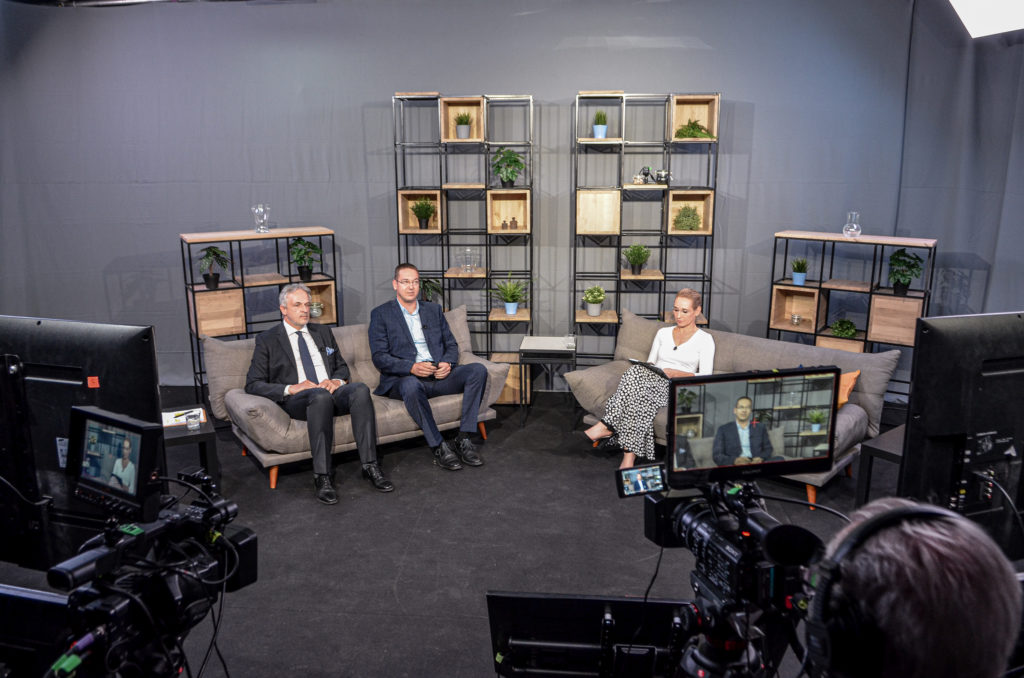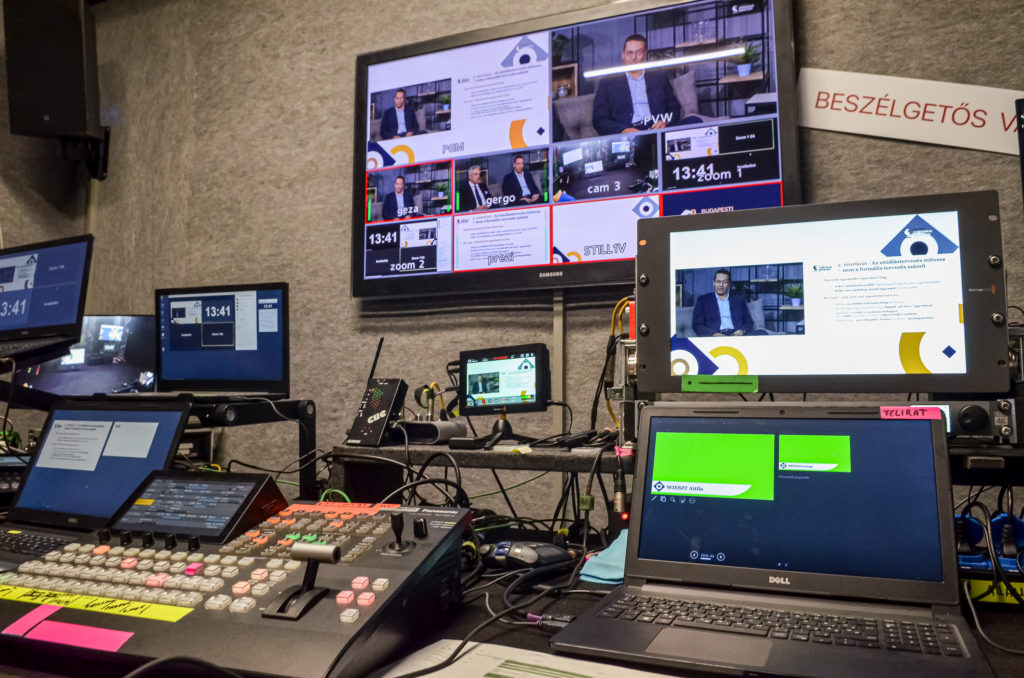How can family-owned companies compete in the global market? – Conference held at Corvinus

The key question is “why”
Wellendorff is the only jewellery company in the world still owned by the founding family. Founded in 1893, the company competes in the global market with brands such as Cartier, Tiffany, Bulgari and Boucheron. “Multinational companies have more money, more space and better technology. This is not equal competition,” says company manager Christoph Wellendorff, who has represented the 4th generation of the family since its foundation.
Yet they have stores in Munich, Vienna, Berlin, Beijing and Tokyo, and the business has been growing steadily for 128 years, which he believes any company can do if it can answer its own “why”. “The Swatch Group’s ‘why’ is simple, they want to make a profit, ours is a little more complex than that,” he begins, talking about the family’s ars poetica, which is to sell jewellery that is passed down through the family and retains its value, just as the company is preserved and passed down in their own family as an equally valuable asset.
Their proprietary flexible gold concept is the result of 17 years of innovation and is unique in the market – in his view a multinational company would not be able to implement such a long innovation process. According to Wellendorff, these are the key concepts: the “why” and the associated value creation and innovation.

I said it would be ready by June, and he laughed at me.
An outstanding example of a successful family business in Hungary is 77 Elektronika Kft., run by Sándor Zettwitz and his daughter Gabriella Zettwitz. They started their business in the 1980s with the production of blood glucose meters in response to the increasing incidence of diabetes. At that time, in a market dominated by multinational companies, hardly any such products reached Hungary. The Zettwitzes first saw an American device during their holiday in Balaton and then asked the question: “Could we produce such a thing?” And the answer “actually yes” decided the fate of the company: the first prototype was built from Eastern components, which allowed them to enter the domestic market.
They started in 1986 with 6 people in a 27-square-metre apartment and now have 700 employees, with sites in Budapest and Balatonfüred, and in April this year they bought a German company.
According to Sándor Zettwitz, innovation and flexibility have enabled them to maintain their market leadership for 35 years, which is why 115 of their 700 employees are constantly innovating. When they started to produce diagnostic instruments for urinalysis in 1993, they received a request from the Swiss company Roche to further develop one of their products. “We met in January and the head of Roche asked when the prototype could be ready. I said by June and he laughed at me. Then, when we actually delivered the prototype in June, he couldn’t believe his eyes,” says Sándor Zettwitz, highlighting the fact that well-run family businesses can come up with innovations and patents ahead of large multinationals, if they are willing to take risks and spend their revenues on development.
The conference also featured a panel discussion on innovation. BioTechUSA’s Bálint Lévai, one of the company’s managers, emphasised that they define innovation as both the development of new products and the improvement of the company’s internal operations. He says innovation starts with the HR selection process, as it’s up to the mindset of their employees to find new ways and methods on a daily basis. At BioTechUSA, there is a lot of communication with the department heads and they try to create an environment where people dare to speak their minds and articulate what could make the processes work better.
Managing Director Tamás Major, head of TRUMPF Hungary Kft., a 3D laser machining and medical device manufacturer, spoke about their proprietary laser cutting machine, which can cut metal sheets. The development of this technology is an almost market disruptive innovation, which is not typical of family businesses. Martin Jurek, a lecturer in family business at the University of Economics in Prague, said, that, in his experience, Czech family firms are more risk-averse than this, and would only engage in this level of innovation in a sub-sector that they know very well. He added that such developments are the only way to gain a competitive advantage over multinationals, so it is worthwhile to embark on such developments if the company has the necessary capital and flexibility.
How to raise successors
At the conference, two studies on the succession of family businesses were presented by the Corvinus Centre for Family Business, which organised the conference.
During his research on the succession process, research fellow Attila Wieszt concluded that we are currently in the midst of the first major wave of succession in Hungary, as the managers of family-owned companies founded in the 1980s and early 1990s are continuously passing the baton to the next generation.
Attila Wieszt also said that the vast majority of companies want succession within the family. Founders tend to be perceived it s failure, if it is not fulfilled, although there are alternative ways to keep a company going.
Research suggests that the success of the process depends more on the relationship between the predecessor and the successor, on a shared identity and on multiple rounds of consultation than on the pre-planning of the process. According to Attila Wieszt, it is important to give the successor sufficient autonomy to run the company during the handover, but it is not a solution if the predecessor “lets go” of the company. Instead, you need to redefine your own relationship with the company, which does not necessarily mean a complete break.
One interesting pattern in the research was the issue of female successor. Here, it was found that female successors tend to come later to the top than male successors, and thus their acceptance within the organisation is delayed.
Associate professor and head of the Centre György Drótos spoke about a package of proposals that could strengthen the position of family businesses in Hungary. He said that the differentiation of family businesses is problematic both at domestic and international level, as there are several criteria (e.g. ownership share of family members, transgenerational history, active involvement of family members), but it is not easy to draw the boundaries in a way that all actors agree.
Support for professionalisation is also an option, as succession studies have shown that it is no longer succession that brings about more professional and effective operation, but rather that it is a prerequisite for a successful succession process. György Drótos would suggest tools to facilitate this, such as the creation of a common knowledge base and information resources, the development of counselling and mentoring services, or the provision of additional (e.g. financial, legal, even psychological) assistance related to generational change.
The key role played by the “family council”, a forum for family members who are already owners or who later become owners, in German companies that have been in business for more than 100 years, was also discussed. It provides the basis for a shared vision and mission, shapes the values of new generations and ensures the unity of family ownership.
In his closing remarks, György Drótos stressed that the conference’s presentations added a lot to issues such as the constant competition between family businesses and multinationals, or the kind of value orientation that is a key issue in the life of any family business. He said that the conference highlighted two important areas: in the long term, it is those companies that are able to innovate and at the same time deal with the challenges they face, such as the recent Covid difficulties, in a resilient way that will remain viable.